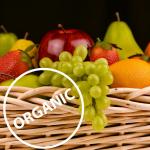
As of 1 January 2020 food manufacturers are to be able to market their products as “organic” only if these products comply with the adopted law on organic food.
The adopted Law defines “organic products” as environmentally clean agricultural products, raw materials and food the production process of which complies with the Law on Organic Food.
The Law sets out a number of requirements applicable to the manufacturing process of organic food. For example, production of organic food must be performed separately from any food that is not classified as organic.
Only a restricted number of agrochemicals, pesticides, antibiotics, grown stimulators as well as hormonal preparations and feedstuffs for animals are to be allowed for organic food production. Organic food can’t contain any genetically modified organisms or organisms generated by cloning.
Hydroponics is not permitted for organic vegetable growth.
Manufacturers intending to market their products as organic will have to undergo voluntary certification. Certification will be performed by specially accredited certification bodies.
The authorities will create and maintain a Common Registry of Organic Food Producers.
Labels of organic products may contain the word “organic” or words and short names deriving from the word “organic”. There will be a graphic sign (adopted by a separate regulation) that producers will be able to place on their products to indicate that such products can be considered “organic”.
Law: Federal Law No. 280-FZ of 3 August 2018 on Organic Products





